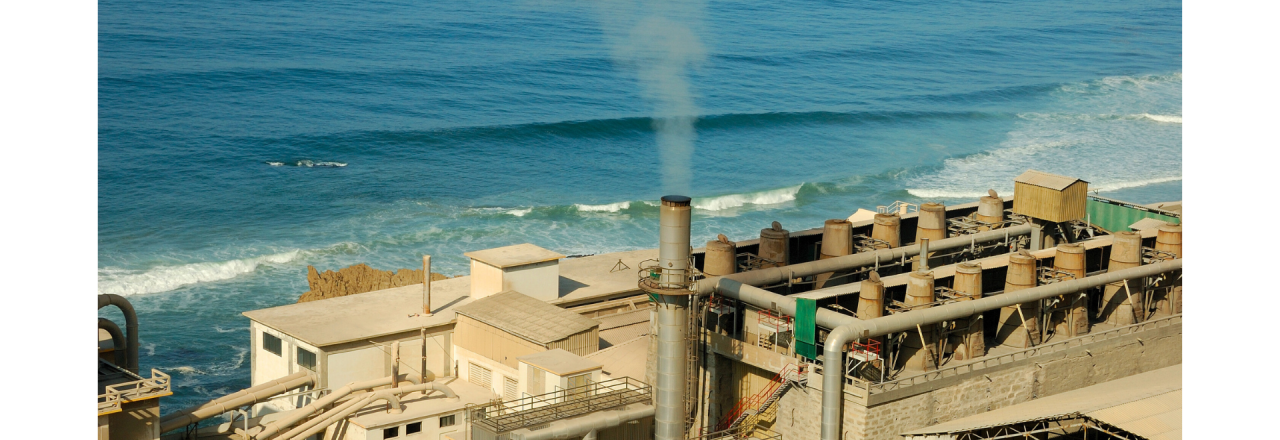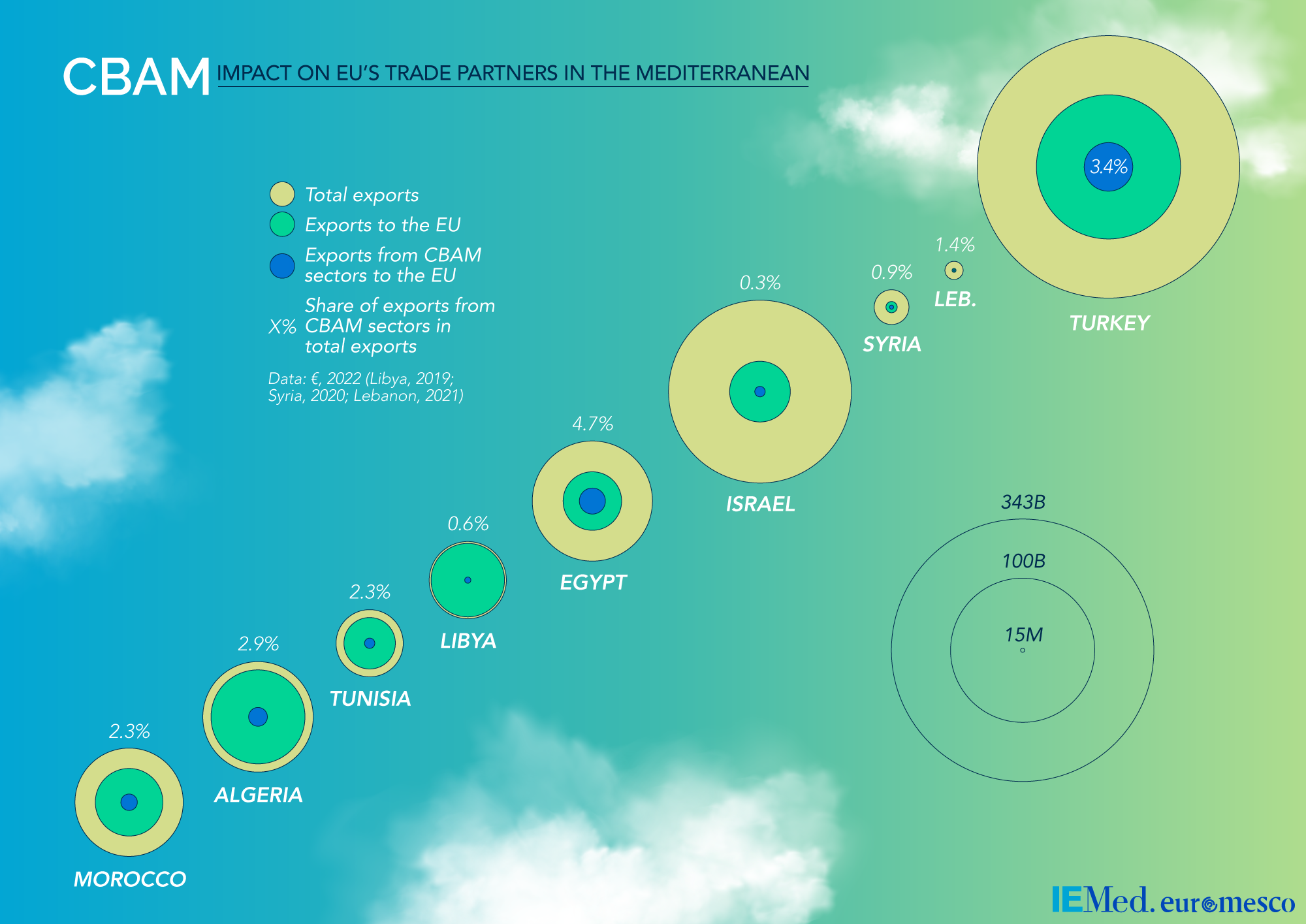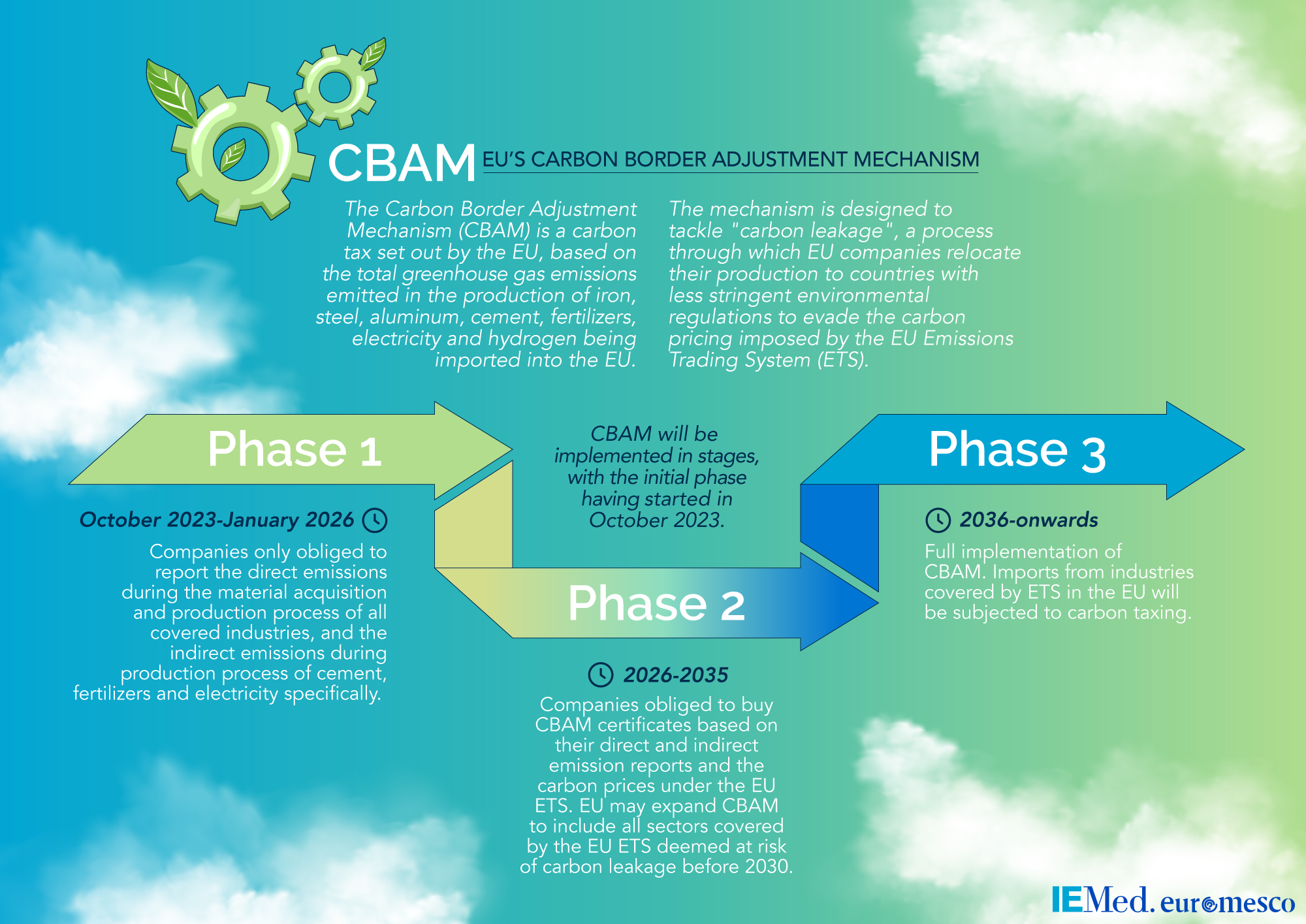
Joint Policy Study / Policy Study
Implementing the CBAM: How Are the EU’s Southern Neighbours Preparing and What Can the EU Do to Help?






Abstract
This joint policy study explores the implications of the European Union’s (EU) Carbon Border Adjustment Mechanism (CBAM) on its Southern Mediterranean neighbors, focusing on Algeria, Egypt, Libya, Morocco, Tunisia, and Turkey. Introduced as part of the European Green Deal, the CBAM aims to prevent carbon leakage by imposing carbon pricing on selected imports, mirroring EU emissions standards. The study finds that while these countries face varied exposures due to their economic dependencies and trade relations with the EU, the immediate macroeconomic impact of CBAM appears limited. However, concerns persist regarding sector-specific vulnerabilities and social repercussions, particularly affecting workers in emission-intensive industries. Despite potential challenges, the study identifies opportunities for Mediterranean countries to leverage CBAM as an incentive for accelerated decarbonization. Examples include Morocco’s efforts to transition its fertiliser industry to renewable energy and Egypt’s initiatives towards green hydrogen production. These proactive measures not only enhance competitiveness in the EU market but also align with global trends towards sustainable development.
Policy recommendations highlight the importance of national policies that promote clean energy adoption and emissions reduction, thereby mitigating CBAM impacts. Additionally, the study advocates for EU support through enhanced technical assistance, capacity-building, and collaborative partnerships. Such partnerships, exemplified by existing EU-Mediterranean initiatives, offer frameworks for mutual benefit in climate action and economic resilience. Ultimately, effective implementation of CBAM requires a balanced approach that supports economic transformation while advancing climate goals. International cooperation emerges as pivotal in ensuring equitable decarbonization pathways and minimizing adverse effects on vulnerable economies in the Mediterranean region.




